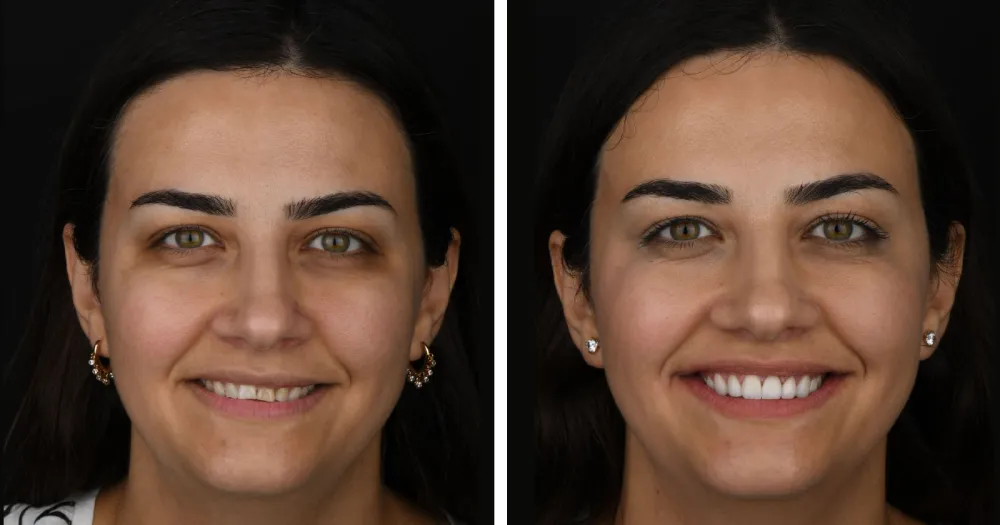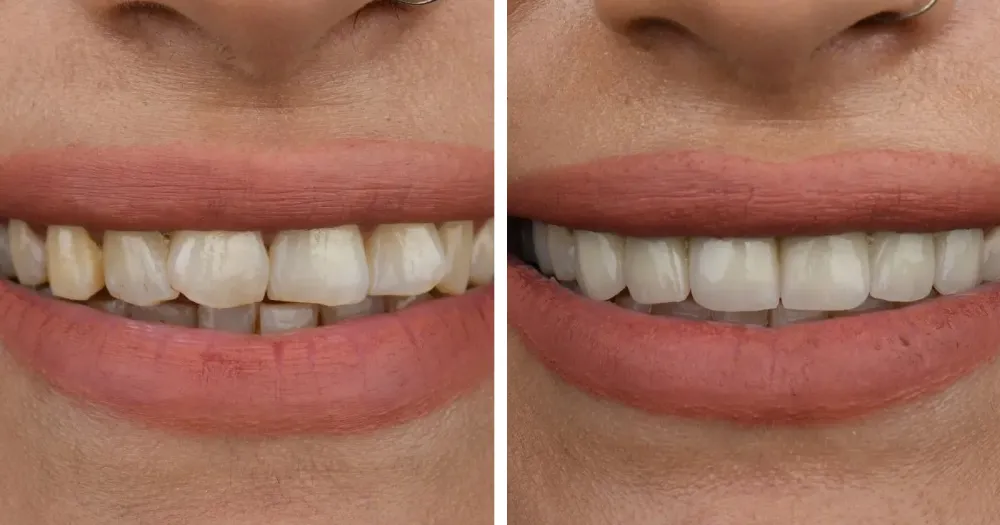Prosthesis
Prosthesis
Which procedure is commonly performed in a Dentopol Prostheses clinic?
At Dentopol Prosthesis Clinic, the following prosthetic applications and more are performed by Prosthesis Specialist Dentists:
Partial Prosthesis, Full Prosthesis, Immediate Prosthesis, Veneer Crown, Laminate Veneer Crown, Lumineers Crown, Zirconia Crown, precious metallic Porcelain Crown, Implant supported prostheses, Ceramic crown on implant, Zirconia on Implant, Telescopic crown, Temporary Crown, Night Tray ( For Bruxism- Teeth grinding), Repair, Bridge Crown Reparation, Tooth extension (Single Teeth), Fallen Crown and Bridge Cementation, Overdenture.
What is a Dental Prosthesis?
Dental Prosthesis is all the artificial materials that are made to reestablish the functions of the losing teeth of the patients. The treatment of dental prosthesis is made by a prosthesis expert. Only a prosthesis specialist can determinate which prosthesis is adapted to the patient because prosthetic treatments vary from person to person.
-
How many Dental Prosthesis are there?
There are two different kind of prosthesis; they can either be fixed permanently or removable. Fixed prosthesis like crowns or bridges can differ according to the used materials during its construction. According to the used material, they can be called full metal, metal-supported porcelain teeth, or full porcelain teeth. The removable prosthesis can be named in different ways according to different aspects.

There are 3 Main Types of Dental Prosthesis.
Fixed Prosthesis: Fixed Prostheses are prostheses that are glued to the tooth by the prosthesis specialist and cannot be removed by the patient. These prostheses do not move in place and are very comfortable.
Removable Prosthesis: These prostheses are inserted and removed by the patient and are difficult to use, but after the period of adaptation the prostheses become more comfortable.
Implant supported Prosthesis: Implant supported Prosthesis are prosthesis that are placed after the dental implant treatment on implant. These prostheses are planned and could change according to the crowns, fixed or removable prosthesis or the number of implant.

What are the types of removable dentures?
-
Full dentures (typically used in older age, for patients who are not suitable for implant treatment)
-
Partial dentures (used in partially edentulous mouths, attached to natural teeth using clasps or hooks)
-
Precision attachment dentures (metal-retained dentures that are not applied to partially edentulous areas)
-
Immediate dentures (temporary teeth provided immediately after extractions)
What are the types of implant-supported prostheses?
-
Fixed crowns on implants, for one or more missing teeth
→ A distinction is made between metal-supported porcelain crowns and zirconium crowns. Depending on the number of implants, All-on-Four or hybrid prostheses may be suitable. -
Removable implant-supported dentures
→ These include bar-retained dentures, locator (snap-on) dentures, and ball-attachment dentures.
What are metal-supported porcelain (ceramic) crowns?
Crowns are used to protect and prolong the lifespan of teeth that have suffered significant damage. The materials used are tooth-colored and tissue-friendly. Patients with aesthetic concerns can choose these crowns for improved appearance.
What is the difference between zirconium and metal-supported porcelain crowns?
Metal-supported crowns have a metal base beneath the porcelain, which may compromise the aesthetics. Zirconium is a white material, offering a more natural appearance. It is also more durable and gentler on the gums.
Click here for detailed information.
How long can I use bridges or crowns?
On average, porcelain prostheses last 5–6 years, depending on oral hygiene and personal habits. With proper care, they can last much longer.
What are Empress crowns?
Empress crowns are highly preferred for aesthetic purposes due to their light-transmitting properties. They offer excellent cosmetic results, especially for front teeth. The substructure is made of reinforced glass-ceramic.
What are zirconium crowns?
Zirconium crowns are metal-free restorations. Their key feature is translucency, which creates a natural look.
What are the advantages of zirconium?
Zirconium crowns are highly aesthetic due to their white color, which eliminates the dark metal reflection seen in traditional porcelain-fused-to-metal crowns. They are also translucent, biocompatible, and unlikely to cause allergic reactions. When maintained properly, they are less likely to cause gum problems.
How should dentures be cared for?
Removable dentures are easy to maintain. Clean them daily after meals with a denture brush. It's also beneficial to remove and clean them before going to bed.
How should a dental bridge or crown be cared for?
Whether on implants or natural teeth, porcelain crowns require the same care as natural teeth. Patients should not assume that artificial teeth are maintenance-free. Brushing, flossing, and rinsing with mouthwash are essential for the health and longevity of both the prosthesis and the gums.
What is a porcelain laminate (also known as a porcelain veneer)?
This is a cosmetic technique used to improve the shape and color of teeth. Thin porcelain shells are bonded to the front of slightly abraded teeth, giving the patient a natural-looking smile in harmony with their lips and gums.
What are the advantages of veneers?
Teeth require minimal preparation (0.3–0.5 mm). In some cases, no abrasion is needed. Veneers adhere better to the gums and offer a natural appearance.
Do crowns shorten the life of teeth?
On the contrary, crowns and bridges fully cover the tooth and protect it from further damage. They are especially beneficial for teeth with large fillings.
Is it true that no tooth material is removed during veneer application?
Minimal enamel (0.3–0.5 mm) is typically removed. In cases of misalignment, more reduction may be necessary.
Is it normal to feel pain after the procedure?
Yes, it is normal to experience sensitivity to cold, especially while using temporary crowns or bridges until the permanent ones are placed.
My speech changed after getting the denture. Will it stay this way?
Speech changes are common after receiving removable or fixed dentures, especially following long periods without teeth. Normally, speech returns to normal within 1 to 2 weeks.
How long does the treatment take?
Prosthetic dental treatments typically take 7–10 days.
What should I be aware of after treatment?
Proper oral hygiene is essential. For bridges, you may not reach all areas with regular floss, so use an interdental brush. Removable dentures may cause pressure sores at first — these should be adjusted by your dentist. Avoid biting hard foods like nuts with your front teeth.
The content on this website is for informational purposes only. It is not a substitute for a medical examination or diagnosis by a qualified physician.
Fill out the form to contact us.
The contents of the site are for information purposes only. This information is definitely not a substitute for the physician to examine or diagnose the patient for medical purposes!


















